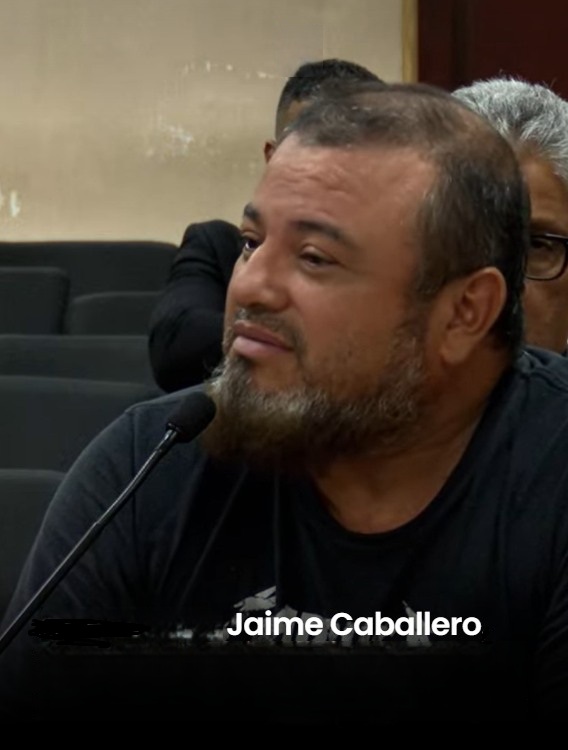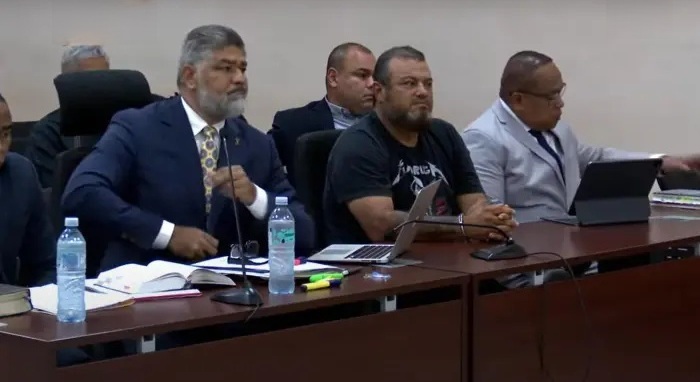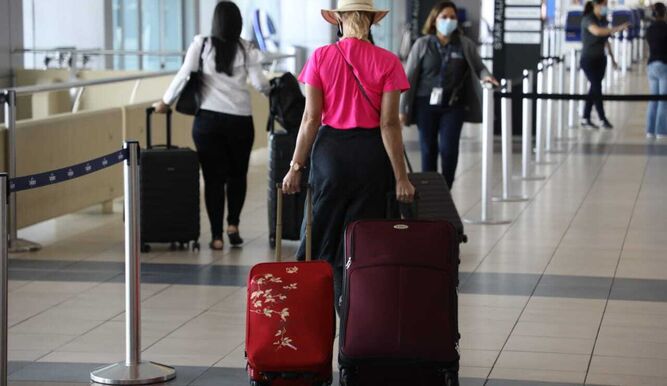SUNTRACS Jaime Caballero’s Defense Withdraws Appeal; Files for Protection of Guarantees
On May 16, the judge ordered Caballero to be held in provisional detention for six months during the investigation period.

The defense team for Jaime Caballero, leader of the Single Union of Construction and Similar Workers (Suntracs), dropped the appeal and instead filed a writ of amparo (explained below). The appeal hearing for Caballero’s provisional detention order was scheduled for 3:00 p.m. Friday May 30 but his defense team withdrew its appeal. Caballero has been detained since May 17 in Nueva Joya, one day after a judge ordered his arrest. On May 16, the judge ordered Caballero to be held in provisional detention for six months during the investigation period. At this preliminary hearing, the arrest was legalized, and he was subsequently charged with alleged financial crimes and money laundering.

For his part, Suntracs’ lawyer, Antonio Vargas, explained that the withdrawal of the case is due to the fact that they do not feel that the accusatory criminal system provides guarantees for an appeal hearing, especially because the defense went before the trial judge without knowing the caption because the Public Prosecutor’s Office had kept it confidential until then. Vargas said that when conditions change, he will file an appeal to review everything done by the Prosecutor’s Office. In addition, an injunction was filed against the decisions made by the judge during the preliminary hearing on May 16.
Writ of Amparo
In Panama, the writ of amparo (also known as “recurso de amparo” or “Juicio de Amparo”) is a legal remedy used to protect fundamental rights, particularly those guaranteed by the Panamanian Constitution and international human rights treaties. It acts as a procedural mechanism for individuals to seek judicial relief when they believe their rights are being violated by actions of public officials or private individuals.
Key aspects of the writ of amparo in Panama:
- Protection of Constitutional Rights:
The amparo serves as a safeguard for fundamental rights, including those not specifically addressed by the writ of habeas corpus, which focuses on the right to personal liberty.
- Procedural Mechanism:
It is not just a writ but a judicial proceeding with specific rules and procedures.
- Judicial Intervention:
The court can issue orders to stop or compel actions, ensuring that the violation of constitutional rights is rectified or prevented.
- Broad Protection:
The amparo action can be invoked by any person who believes their rights are being violated, and it protects both individual rights and the constitution itself by preventing its principles from being undermined.
- Availability:
In Panama, the amparo is a mechanism provided for in the constitution and is a key tool for protecting individual rights and freedoms.





